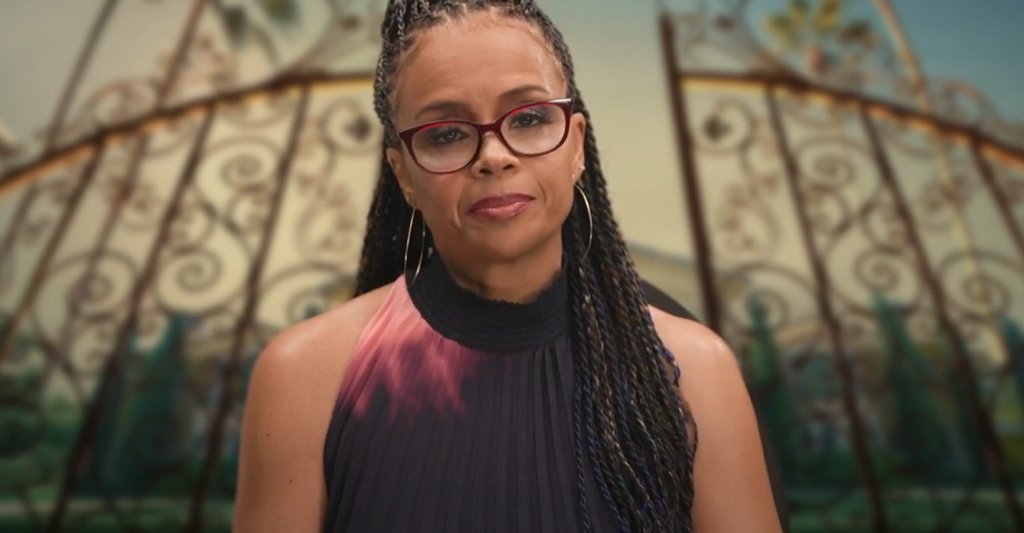Just when you thought it was safe to be hopeful again, here comes another reality check.
The Bunche Center at UCLA has released its annual “Hollywood Diversity Report” to remind us that we’re still nowhere near where we should be in terms of gender and racial diversity. Researchers examined 172 theatrical films released in 2011 and 1061 TV shows aired during the 2011–12 season on six broadcast and 62 cable networks, eloquently explaining their reasoning as follows: “When media images are rooted primarily in stereotype, inequality is normalized and is more likely to be reinforced over time through our prejudices and practices.”
Here’s the crazy — and yet entirely logical and expected — part: Diversity means money. Broadcast comedies and dramas with more diversity get higher ratings. Films with just 21–30% diversity earned a global median box-office total of $160 million, while films with less than 10% diversity made just $68.5 million.
Some more depressing stats from the Bunche Center study:
— Women are underrepresented by a factor of nearly 2 to 1 among lead roles in film; women had the lead in just 25.6% of the films
— Women are less likely than minorities to be film directors: women directed just 4.1% of the movies and were underrepresented by a factor of 12 to 1
— Over 90% of Oscar-winning films were directed by male directors
— Over 80% of Oscar-winning films feature male leads
— Women make up 14.1% of writers but are still underrepresented by a factor of 3 to 1
— Women make up half the leads on broadcast comedies and dramas but just 37.2% of the leads in scripted cable shows
— Women account for only 24.5% of leads on broadcast reality shows and 30.6% of leads in cable reality shows
— Women created 26.5% of the broadcast comedies and dramas and 21.5% of the cable comedies and dramas
— 26.4% of cable comedies and dramas had writing staffs that were less than 10% women
— 6.3% of broadcast comedies and dramas had over 50% female writing staffs
— 10.3% of cable comedies and dramas had over 50% women writers on the staff
— Women directed 10% or less of the episodes on over 50% of all comedies and dramas on broadcast TV
— Women directed 10% or less of the episodes on 65% of all cable comedies and dramas
— Women directed the majority of the episodes for only 2% of the shows examined
— 20% of Emmy-winning broadcast comedies and dramas are created by women
— 7% of Emmy-winning cable comedies and dramas created by women
— More than 60% of broadcast comedies and dramas have writing staffs that are 10% minority or less
Here’s the conclusion from the report, which is well worth the read:
The 2014 Hollywood Diversity Report has documented an apparent disconnect between the industry’s professed focus on the bottom line and actual staffing practices in film, broadcast television, and cable. That is, while films and television shows with casts that reflect the nation’s racial and ethnic diversity were more likely to post high box office figures or ratings during the study period, minorities and women were nonetheless woefully underrepresented among the corps of directors, show creators, writers, and lead actors that animates industry productions.
Moreover, the dominant agencies — important gatekeepers for the film and television production process — tended to load their talent rosters with white male directors, show creators, writers, and leads, largely to the exclusion of minority and female talent.
The idea that there is a necessary tradeoff between diversity and excellence has enabled this industry status quo. When confronted with abysmal diversity numbers, industry decision makers often resort to the “small pool” argument as a justification for the situation: “There is a shortage of diverse talent out there.” Meanwhile, the lack of diversity in how the industry celebrates excellence works to reinforce this idea. Behind the scenes, the decision makers responsible for the high-stakes productions that constitute Hollywood routinely surround themselves with people with whom they feel comfortable — people who think (and often look) like them. The combination of these factors creates a vicious cycle that virtually guarantees the marginalization of diverse talent in the industry.
This disconnect does not bode well for the future of the Hollywood industry. Women already constitute slightly more than half of the U.S. population, and more than a third of the population is currently minority and the population continues to diversify at a dizzying rate. Indeed, for the first time in 2012 the majority of babies born in the United States were non-white; by 2042 the nation’s white population is projected to no longer constitute the majority. (This will be the case in California before the end of 2014.) This new emerging America will undoubtedly continue to express its diversifying experiences and tastes by making entertainment choices that resonate more faithfully with them. The bottom line for the Hollywood industry — theatrical film, broadcast television, and cable — would be advanced by implementing forward-looking project development and staffing practices that are in sync with these changes.







